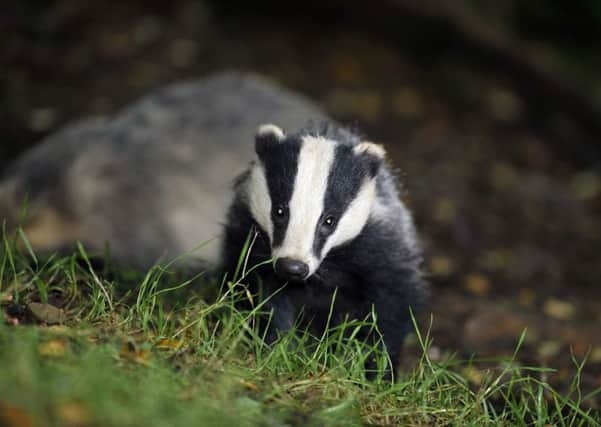New efforts to tackle Bovine TB


This week badger culling was given the go-ahead in 11 new areas of England as part of efforts to tackle tuberculosis in cattle.
Licences for new schemes across parts of Devon, Wiltshire, Somerset, Dorset and Cheshire have been announced, as part of an expanded cull programme which could see as many as 33,000 badgers killed.
Advertisement
Hide AdAdvertisement
Hide AdThe Government has committed to rolling out culling to more areas, saying it is necessary to curb TB in cattle as badgers can transmit the disease to livestock, but opponents reacted angrily to the move.
Yorkshire is currently deemed to be a low risk area for Bovine TB, with no plans to extend the scheme here.
A badger vaccination scheme, that was suspended for two years following a global vaccine shortage, has re-opened for expressions of interest, with projects set to start next year, in a bid to stop the disease spreading to new areas.
A new advisory service for farmers that will provide advice on farms, by phone and email, to livestock owners in areas at high risk or on the edge of the areas suffering the disease, is also being launched in the autumn.
Advertisement
Hide AdAdvertisement
Hide AdNFU Livestock Lead, Jane Dungait said: “Thankfully, Yorkshire is so far deemed to be a low risk area for Bovine TB. We have very few cases and no evidence of the disease in our wildlife populations. Our primary goal is to maintain this status and working with the local veterinary team at the government’s Animal and Plant Agency we are working towards achieving officially ‘TB Free’ status for the North East, possibly as soon as next year.
“Farmers in Yorkshire are rightly concerned about the potential spread of this devastating disease and while doing everything possible to prevent bringing TB into the region, we do support the government’s TB eradication programme as this clearly impacts on the risk of it spreading further north and east.
“We are currently in the process of staging TB briefing meetings, jointly with APHA, to bring farmers up to speed with the latest situation and the next one will be held at Askham Bryan College next Tuesday from 7.30pm.”
Bovine TB costs taxpayers over £100m every year and England has the highest incidence of the disease in Europe. In 2016 more than 29,000 cattle had to be slaughtered in England to control the disease, causing devastation and distress for farmers and rural communities.
Advertisement
Hide AdAdvertisement
Hide AdFarming Minister George Eustice said: “Bovine TB (bTB) not only has a devastating impact on our beef and dairy farms, but causes harm and distress to infected cattle.
“We have a clear plan to eradicate the disease over the next 20 years and this year we are restarting the Government-backed badger edge vaccination scheme to stop the disease spreading to new areas.
“Vaccination is just one part of our comprehensive strategy, which also includes tighter cattle controls, improved biosecurity and badger control in areas where bTB is rife, to tackle the reservoir of disease in wildlife.”
But the Wildlife Trusts raised concerns that culling was putting local populations of badgers at risk in affected areas, and said badger vaccination was a more humane, effective and cheaper measure than culls.
Advertisement
Hide AdAdvertisement
Hide AdIn a statement, the RSPCA said there was “still no scientific evidence” from the culls, some of which are now in their fifth year, that they were effective in reducing TB in those areas.
“With vaccines now again readily available, it is right that the Government has re-started the vaccination programme, but this should not be misinterpreted as the Government converting its kill programme to using vaccines.
“The RSPCA urges that alternatives should be prioritised, including an effective vaccination scheme, increased levels of cattle testing, improved biosecurity and stricter controls on the movement of cattle,” the charity said.
Queen guitarist Brian May, who campaigns against the cull, said the Government is continuing with a failing policy to seem to be doing something.
Advertisement
Hide AdAdvertisement
Hide Ad“The interests of the farmers would be much better served by a fresh look at this problem by the Government; we believe the real solution is in sight, through enhanced TB testing.
“In years to come, I’m sure that badger culling will be seen as an enormous red herring that squandered time, effort and money, gave farmers frustration and false hope, and diverted attention away from finding the real solution.
“A pause for re-evaluation is long overdue.”